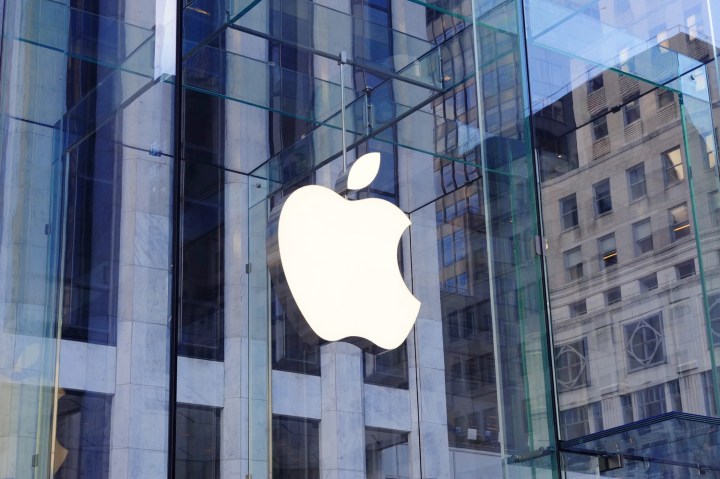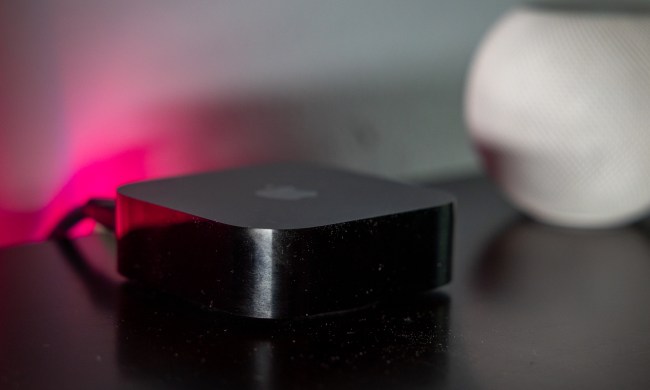
The new Apple TV, which VentureBeat’s sources caution is in the planning stages, will sport a built-in microphone for handling voice commands and a speaker for playing back responses (Apple’s engineers are working on an array that isn’t prone to interference from noisy appliances). And the company’s beefing up its cloud infrastructure in anticipation of the many thousands of additional voice queries the new Apple TVs are expected to generate, according to the report.
The newest Apple TV is capable of handling a select few requests — Siri can dictate text, for example, and can open apps, serve up sports scores, play music, and perform searches for TV shows and apps — but priming Siri requires clicking a dedicated button on the Apple TV’s rechargeable remote control. That presents an obvious problem for folks who primarily use a universal remote to navigate their Apple TV, and a significant barrier to off-the-cuff commands — e.g., simple tasks like “set a timer” and “tell me how many tablespoons are in a cup.”
The rumored set-top box is an intriguing merger of current approaches to voice assistance. Amazon, for example, offers Alexa on its Fire TV set-top hardware, but in a limited fashion. Some of the assistant’s features, like integration with radio apps TuneIn and iHeartRadio, are only available on the company’s Echo devices.
Apple has been “exploring” the idea of transforming the Apple TV into a home hub since 2012, according to VentureBeat, and apparently the firm entertained the notion of releasing a stand-alone Siri device much like Amazon’s Echo. It reportedly decided against doing so because of the significant capital and developmental investment it made in the Apple TV platform, and it also scrapped a new Apple TV remote with improved listening capabilities.
Apple, like Amazon, will encourage third-party developers to take full advantage of the new Apple TV’s voice chops. In the coming weeks, it’ll release a software development kit (SDK) for Siri which will allow apps to leverage the voice assistant’s natural language recognition. In addition, the company will broaden access to HomeKit, its home automation framework.
VentureBeat didn’t guess at a time frame for the new Apple TV, but it may well be years — the hardware’s specs are very much subject to change, and unlikely to be finalized ahead of Apple’s Worldwide Developer Conference (WWDC) on June 17. But when and if the new Apple TV sees the light of day, it’ll face an uphill climb to market dominance — by some analysts’ estimates, Amazon has sold more than three million Echo units.


